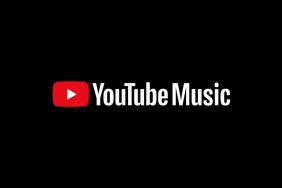YouTube’s parent company Google is set to lose up to $750 million, with major brands such as PepsiCo and McDonald’s pulling their ads from the site as a result of not wanting their products linked to hate speech and other offensive videos.
Nomura Instinct analysts have concluded that these major brands pulling their ads from YouTube would cause Google to take a 7.5% hit on its revenues, which were valued at around $10.2 billion this year. Considering that five of the top 20 US advertisers have currently stalled their advertising deals with YouTube, this could prove to be a big blow to the video-sharing site’s profitability.
The issue advertisers have with the platform is the lack of control over where their adverts will appear. With Google routinely struggling to adeptly moderate the site, ads can appear on a variety of offensive content, including videos affiliated with terrorism and posted by YouTubers who routinely espouse hate speech. Google could employ stricter methods in an attempt to ensure users uploaded more ad-friendly videos, but this would require additional resources and would be difficult to enforce on a widespread basis.
Also: Man Uploads Illegal Footage of Himself Vlogging in North Korea to YouTube
“Ad buyers are likely to demand greater direct control over ad placement, which could take time and resources to implement,” said the note from the Nomura analysts. Unfortunately for Google, TV companies will likely already be looking to capitalize on this response by attempting to seal “upfronts,” in which brands will sign long-term deals with TV networks in order to target specific audiences. This would therefore mean that YouTube would have a tougher time of securing lucrative ad deals throughout the year, as many advertisers may have already struck up lucrative deals elsewhere.
With YouTube having been besieged by controversies in recent months, it’s not difficult to see how the company is struggling to remain an attractive proposition to advertisers. Though it garners a far more widespread audience than traditional TV, some of the site’s more high-profile video makers have found themselves making headlines as a result of their divisive content, which is becoming a tougher sell for major brands given the politically turbulent time period we’re living in.

PewDiePie was involved in a major YouTube controversy earlier this year over an offensive joke, with advertisers now looking at the site more closely.
Earlier this year, the site’s most subscribed YouTuber Felix “PewDiePie” Kjellberg became embroiled in a high-profile conflict with the Wall Street Journal, as a result of the publication’s report regarding a video the YouTuber made in which he paid two Asian men on the online freelancer site Fiverr to hold up a sign reading: “Death To All Jews.” Though the YouTuber stated that the video was a joke and apologised to those offended, it resulted in YouTube cancelling the second season of his online reality show Scare PewDiePie and Disney’s Maker Studios concluding its affiliation with him.
This was followed by YouTuber Jon “JonTron” Jafari, who has 3 million subscribers on the site, being roundly criticised for comments he made in a live stream in which he erroneously claimed: “Wealthy blacks commit more crime than poor whites,” along with stating that white people did not want to “become a minority in their own country.” JonTron was dropped from his voice acting role in the upcoming video game Yooka-Laylee as a result of these comments.
Though advertisers are reportedly more concerned with their products being affiliated with hate speech, Google has also stated that it will be targeting vaguely defined “derogatory content” as part of a crackdown to make the site more ad-friendly. The tech giant has confirmed that it has hired new staff members in order to police its advertising standards, while artificial intelligence will also be used to take down content that has been deemed harmful, according to the New York Times. It is unclear how Google is defining derogatory content at this point.
It’s uncertain how this will affect the landscape of YouTube, but advertisers reportedly want Google to be able to promise that their videos won’t appear on such content before they reevaluate their ad deals with YouTube. This will encourage Google to work faster, but it also increases the chances of this having a transformative effect on the site and the content creators who earn money on it.








